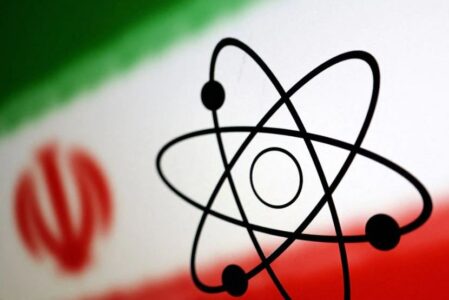Written by Uriel Araujo, researcher with a focus on international and ethnic conflicts
Iran’s chief nuclear negotiator (and also deputy foreign minister) Ali Bagheri-Kani and European Union’s foreign policy official Enrique Mora held meetings in Qatar on June 20. According to the Iranian diplomat, the two of them “exchanged views and discussed a range of issues including negotiations on sanctions lifting.” Mora described the meeting as “serious and constructive”, having covered “a range of difficult bilateral, regional, and international issues, including the way forward on the JCPOA.” EU spokesperson Peter Stano stated that the bloc is “keeping diplomatic channels open, including through this meeting in Doha, to address all issues of concern with Iran.”
Despite Mora’s optimism, on June 23, a German Foreign Ministry spokesman claimed that these latest talks between Iran and the E3 (Germany, France, and the UK) are not efforts to resume talks towards reviving the JCPOA nuclear deal at all.
In any case, the Secretary General of Germany’s Liberal Free Democratic Party (FDP) Bijan Djir-Sarai criticized the meeting, describing it as “wrong and shameful”. Before that, Norbert Röttgen, a member of the German Parliament had also criticized Berlin for negotiating with Iranian authorities. In Europe, there is strong pressure to designate Iran’s Revolutionary Guard as a terrorist organization, a measure the US took in 2019.
Many analysts believe Washington in turn plans to reach an informal (unwritten) deal with Tehran to prevent further escalation between the two countries. This is not necessarily about implementing the 2015 Joint Comprehensive Plan of Action (JCPOA), an over 100-page written agreement which was unanimously approved by a UN Security Council resolution. Rather it seems to be about resurrecting the discussion and paving the way to further dialogue by coming up with an “understanding” – in other words, a “political cease-fire” (as Iranian officials have been describing it) to avoid or reduce the risk of a military confrontation with Tehran. In 2018, Donald Trump withdrew from the JCPOA deal and imposed further sanctions on the country.
It has been reported the supposed agreement involved Iran commiting to refrain from enriching uranium beyond 60 percent or even stopping (or at least slowing down) the stockpiling of uranium enriched at such level. The deal in discussion possibly also involves other things such as Tehran expanding collaboration with the International Atomic Energy Agency (IAEA). Washington in return would stop pressuring either IAEA or the UN Security Council to implement measures against the country, would withhold tightening sanctions against Iran, and also refrain from seizing oil tankers carrying Iranian oil – as it has been doing during today’s fuel wars against Iran and Lebanon.
In addition, the Islamic Republic would release some American citizens currently under arrest, while the American superpower in turn would also release four Iranians held in custody, and unfreeze Iranian money held in banks overseas.
There have been some gestures on both sides which seem to pave the way for further dialogue. Washington recently provided the Iraqi government with a waiver allowing it to pay $2.76 billion gas and electricity debts to Iran, while the Iranian Supreme Leader Ayatollah Ali Khamenei signaled his openness to a deal with the West in his June 11 speech – the condition being that the country’s current nuclear infrastructure remain untouched.
An overburdened Washington can barely afford yet another war (in the Middle East, in this case), and, according to the Quincey Institute for Responsible Statecraft’s executive vice-president Trita Parsi, US President Joe Biden is bent on avoiding any further crisis with the Persian nation in the next months preceding before the 2024 presidential election – while Tehran, in turn, badly needs economic relief and an atmosphere which allows for it to continue with the process of normalizing relations with a number of Arab countries.
The Middle East and the global geopolitical landscape have vastly changed, and recent developments such as the Saudi-Iranian normalization plus the Russian-Iranian strengthened relations have made it quite difficult to isolate the Islamic Republic, which is increasingly integrated into the Eurasian region.
European efforts towards de-escalation are thus quite aligned with the US current thinking on the matter and should not be seen (despite having come under fire) as an exercise of Europe’s “strategic autonomy”. It in effect seems to have full blessing from Washington.
Today, when global peace is constantly challenged by Washingnton’s dual containment policy towards Beijing and Moscow, and by frictions with North Korea, among other worrisome scenarios which haunt us all, any Western de-escalation with Tehran is necessary and should be seen as a fortunate development. This might buy everyone some time, however it is far from being enough, while the Caesar Act, for instance, is still employed by the US against actors in the region such as the Syrian state. In other words, should the “informal understanding” materialize, it won’t solve the problems involving Iran and its partners, for they are based on deep systemic and geopolitical tensions.


